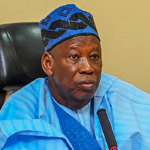It turns out we have a reason to live. To live long and to prosper as well. This reason is called the cyclical engine of history.
The rudiments of the cyclical engine of history have been held in regard to three fields – religion, history and society. This view arose from the observation of recurrences in the environment and is most conspicuously seen in the political culture of civilisations. The observation of the generation cycle has been reflected in the cult of ancestors, important in our own histories going back to before the advent of Islam and Christianity, as well as in older civilisations and in pre-civilisational societies of the ancient world.
In ancient China for instance, the observation of the annual cycle of the seasons and its crucial effect on agriculture is reflected in a ceremony in which the emperor used to plow the first furrow of the current year. In Egypt, this was symbolised in the ceremonial opening of a breach in the dike of the Nile to let the annual floodwaters irrigate the land in Sumeria by the annual sacred marriages, performed by a priest and priestess representing a god and goddess, which was deemed to ensure the continuing fertility of Babylonia… and in animist Hausaland, this was expressed through family rituals, public rituals, individual aspects, and possession-trance rites. The family rituals were done by the “Mai-Gida”, the head of the patrilineal extended family that works the same ancestral land (gandu), in connection to agricultural events and marriages.
A cycle longer than that of the seasons is represented by the recurrent avatars or reincarnations of the Indian god Vishnu, one of the most popular deities of Hinduism, and in the corresponding series of buddhas and bodhisattvas, or buddhas-to-be. Although the only historical Buddha was Siddhartha Gautama (6th–5th century BCE), in the mythology of the northern creed of Buddhism called the Mahayana school of thought, the identity of the historical Buddha has been almost effaced by a long vista of putative buddhas extending through previous and future times.
- Trump and Musk can bring peace to golf – McIlroy
- Invictus Games: FG, African Unconquered Foundationseal deal on wounded soldiers’ empowerment
But what has this arcane “dogon turanci” about alien cultures with very few reference points that holds no ontological significance to who I am, got to do with me and my Nigerian kinsmen, or got to do with a reason for us to trudge on through the pain and misery of Tinubu’s Nigeria and to a world where Trump 2.0 will control the most powerful country and geopolitical bloc?
Ibn Khaldun, known as one of the leading theorists of Islamic political thought, has highly influenced the scholars with his thoughts on economics, history, sociology and philosophy. Due to the breakthroughs associated with his name, he is regarded as one of the fathers of social sciences.
One of his most impressive ideas is the cyclical engine of history which defines the rise and fall of sovereign powers including dynasties, empires, civilisations, states together with their material fortunes. This cyclical theory assumes that sovereign powers are like living organisms, they are born, grow up, mature and die.
To explain this pattern, Ibn Khaldun uses his umran and asabiyya concepts. “umran” and “asabiyya” are the glues of the cyclical engine of history which explains the birth and death of sovereign powers. Also, in the light of Ibn Khaldun’s theory is the reason why and how the Ottomans could survive, unlike a lot of other strong dynasties in Anatolia, conquered and replaced states and empires as a simple principality, rose as an empire and later collapsed.
As has been mentioned, the theory’s utility is not restricted to the rise and fall of empires or political entities. It also applies to the socioeconomic fluctuations in the fortunes of societies. As a millennial, I am a victim of those wistful “tales by moonlight” we suffer mostly from the “boomers”. I have heard them all, from my parents, uncles, aunties and grandparents. Sometimes even from people I meet on the street.
Apparently, Nigeria was a loud party before I was born. Milk and honey flowed right through the streets, and everyone owned a mansion and hunger was unheard of. My late grandmother spoke of a certain infallible ‘hiriniya’, (who I came to understand meant ‘Premier’ Ahmadu Bello), the patron saint of modern Northern Nigeria, under whose leadership even the lowest of the low lived large.
That was the second notch of the sociological chain of Khaldun’s theory. The practical interpretation of the theory envisages a rough beginning defined by difficult times. Because hard times create strong men, at the end of the day the outcome is the creation of good times under the leadership of these strong men.
The difficult times were the days the hiriniya, together with his lieutenants and cohorts from across the Niger, led the charge against the venal stranglehold of our British colonisers. They won that war, without a single shot being fired and that was in itself an achievement presupposing the leadership of great men—strong men.
But the good times created by the strong men are actually a calamity characterising the third notch of the chain – in that they created weak men. When strong men created good times, the good times in turn created weak men. And what do weak men create? They create misery, they create difficult times. The type of hard times we are in.
Is this what has happened to us, to this country? Did the good times created by the hiriniya and his fellowship weaken and corrupt those who were born and bred in the heydays of the First Republic, those who have now laid to waste the good times bequeathed to them, thus swinging the pendulum of society back to the darkness? Is this why the Tinubus, Buharis and the Beta Eduns of this world are besieging us?
If yes, what are the implications? Difficult times create strong men, and strong men will create good times. My generation was natured and nurtured by blood and by iron, by thirst and by hunger – so does that then mean we are actually superheroes? Does that mean we are the strong men that will vanquish this darkness to herald the return of the king? I think yes.
And to me, that is another reason to live.
 Join Daily Trust WhatsApp Community For Quick Access To News and Happenings Around You.
Join Daily Trust WhatsApp Community For Quick Access To News and Happenings Around You.


